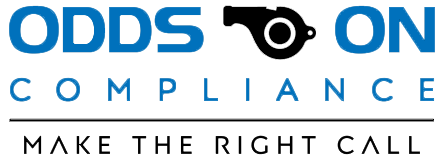One down, two to go
Kentucky passes, eyes turn to North Carolina, Minnesota, UK’s OHID comes in for criticism, Philippines considers a POGO ban +More
Good morning. On today’s agenda:
As Kentucky passes, eyes turn to two other potential OSB states.
North Carolina includes esports language in its legislation.
UK: OHID report comes in for criticism.
More detail emerges on the UK's economic crime levy.
Cashpoint has its knuckles rapped in Denmark.
The Philippines is considering a ban on offshore operators.
Let's fill our pockets with macadamia nuts.
Mission Accomplished
Working 9-to-5: Supporters of sports betting in Kentucky spent the final two days of the legislative session rallying votes, and their efforts paid off. The Kentucky Senate approved HB 551 on Thursday, and Gov. Andy Beshear signed the bill Friday morning.
Due to legislative rules, the vote required a 60% majority (23 votes). It passed with a couple of votes to spare, garnering 25 votes.
In the leadup, supporters were one vote shy, with three undecideds. The final vote indicates all three voted for the legislation.
2023 2024: Attention now shifts to when Kentucky’s online sports betting will go live. Per law, the rulemaking process must wait 90 days until June 29. At that point, the Kentucky Horse Racing Commission can begin promulgating rules, including the licensing process.
Considering the KHRC’s unfamiliarity with non-racing forms of gambling and the current scrutiny other states face for rushing the process, the process will take time.
Rep. Michael Meredith, the bill’s sponsor, has put forth a late-2023 to early-2024 launch timeline. Considering Meredith’s position, our best guess is a launch well into 2024.
A complete breakdown of the bill can be found here: Sports Betting Is Coming To The Bluegrass State
North Carolina is on the clock: Kentucky has salvaged a barren year for gambling expansion. Now it’s up to the North Carolina legislature to run up the score.
The North Carolina House has already passed legislation (HB 347) legalizing OSB. The 66-45 vote starkly contrasts last year’s efforts, which failed by the slimmest of margins. The bill is not seen as controversial in the Senate, which passed a similar bill in 2022, and Gov. Roy Cooper has said he would sign a mobile betting bill into law.
HB 347 was approved on first reading in the Senate last week and is now in the Rules and Operations Committee.
A third contender: Kentucky and North Carolina, would make 2023 a decent year, but a third candidate, Minnesota, could turn it into a good year. HF 2000, a bill placing sports betting in the hands of the state’s tribal gaming operators, has been on a meandering path through the legislature.
The bill has passed three committees and has sat in a fourth, the State and Local Government Finance and Policy Committee, since March 13.
** SPONSOR’S MESSAGE ** Department of Trust's mission is to turn affordability, AML, EDD and safer gambling checks from being a challenge which erodes trust, consumes resources and complicates operations into a value-add which enhances your relationship with your customers and supports your business. That's why we're proud to have such strong support from players and operators alike. Visit: www.dotrust.co.uk/
Esports betting
North Carolina is only the 13th state to include esports betting in its proposed legislation.
On the menu: Esports are included in North Carolina’s sports-betting bill, HB 347, authorizing esports wagering for both in-person and online events and featuring no restrictions such as bet limits. It makes North Carolina the 13th state to do so.
Publishers call the shots: Game publishers are noted as the “sports governing body” in the context of esports wagering. This would give the keys to companies like Valve and Riot Games to oversee wagering on titles such as Counter-Strike and League of Legends, respectively.
Under the proposed bill, game publishers are authorized to enter into commercial agreements with licensed operators.
Operators “may share in the amount bet” from wagering in the game titles they represent as the sports governing body.
Publishers will not need to obtain a license or any other approval from the commission to lawfully enter such an agreement.
Publishers will have the ability to submit a written request to restrict, limit, or exclude specific events, markets, or its IP as a whole if it’s believed that sports wagering may “undermine the integrity” of its games or tournaments.
Esports trending quietly in the US: While often overshadowed by the traditional sports betting market, developments and discourse around esports continue to incrementally trend in an upward direction.
New Jersey Division of Gaming Enforcement Dep. Attorney General Anthony Strangia said that half of the state’s licensed sportsbooks accept esports wagers.
North American notebook
Admitting the obvious: Talking to Huddle Up’s Joe Pompliano, DraftKings CEO Jason Robins admitted there was “too much tribal opposition:” to get legislation done, and though he added he still had faith “there was a path”, he also indicated it wouldn’t be any time soon.
“It’s not in the next year,” he said. “It’s a longer-term thing.”
Recall, the industry suffered a bloody nose at the ballot box last November when it ran into severe tribal opposition.
“If someone wants to drop $200m in a single state on ad spend, they can certainly poison the well,” he told Pompliano.
OHID and seek
A report on the economic costs of gambling comes in for some criticism.
Slam: A recently published critique of the Office for Health Improvement and Disparities report into the economic and social costs of harms associated with gambling claims the report’s authors are guilty of making up figures to suit an anti-gambling agenda on the part of the authors.
The original report produced on behalf of the Department of Health and Social Care was updated in January.
It reiterated the claim that gambling-related harms came at a “considerable cost” to the government and wider society of between £1.05-£1.77bn.
Opacity: The response from Dan Waugh at Regulus points out that the original report undertaken on behalf of the Department of Health and Social Care suggests the basis for OHID’s calculations are – by the body’s own admission – “highly speculative, undermined by factual errors, opaque calculations and questionable methods”.
Waugh adds that the costs identified – which included those related to suicides, depression, alcohol and drug dependency, unemployment and imprisonment – can’t “with any degree of confidence” be attributed to either gambling or gambling harms.
He adds that many of the “costs” and intangible costs rather than direct costs to the state.
The public health push: Waugh points out that the UK Gambling Commission has itself questioned the relevance of these calculations to policy. In a response to the similarly contentious Public Health England report, which also made claims about £1.3bn of “costs” from gambling, it said it came from a desire to “ensure gambling is considered as a public health issue”.
Waugh says the suggestion from the Commission is that PHE (and by association OHID) promoted cost estimates of “questionable accuracy and relevance or order to support a predetermined agenda”.
When it comes to the economic benefits of gambling, moreover, Waugh points out that OHID, like PHE before them, simply ignores the issue.
Economic crime levy
More details of the economic crime levy to be collected by the Gambling Commission have manifested.
Uh, wallet inspector: The new levy is an annual charge on “regulated entities” subject to money laundering laws (that includes banks and law firms alongside casinos), and whose UK revenue is greater than £10.2m per year.
The largest firms (over £1bn UK revenue) will have to pay £250,000 annually, with the cash funding various government initiatives intended to tackle the UK’s reputation as a haven for dirty money.
Operators earning less than the £10.2m threshold still have to register and submit annual returns to the regulator.
The first payment falls due in July 2023 for the previous accounting period.
The first annual levy payment must be made before 30 September 2023 and is based on the accounting period ending during the financial year 1 April 2022 to 31 March 2023.
Every cough and spit: An explainer from the gambling team at Ince noted the turnover nature means all revenues from any source, regardless of whether they are linked to gambling, will count.
For land-based casinos this would include food and drink, and there will be no deduction for winnings paid out.
The calculation of liability will almost certainly draw in larger numbers of license holders than if it was based on a gross gambling yield basis, said Andrew Cotton, director of betting and gaming at Ince.
Online casinos without a presence in the UK, but taking money from UK punters are also liable.
“Remote casino license holders based overseas will be required to calculate liability on the revenues derived from the UK market,” Cotton added.
Give us a clue: C+M’s questions went mostly unanswered by the Gambling Commission, which pointed instead to a guidance document published on Thursday, adding that casino operators will receive more information “in due course”.
Returns must report the accounting period details, UK revenue for that period, the band and amount due, and with more details on how to submit a return to follow from the regulator.
What the Commission didn’t explain was its revenue collection process and how it verifies the data, or why it now has the responsibility of collecting a tax that has nothing to do with the provision of gambling activities.
Cashpoint’s KYC censure
Maltese-licensed sportsbook Cashpoint Limited has had its knuckles rapped by Denmark’s gambling regulator over sloppy compliance protocols.
If I had a photocopy of you: Up until 21 December 2022, Cashpoint wasn’t taking copies of ID from customers who won more than DKK14,870 ($2,620).
The Know Your Customer failings were in breach of Danish anti-money laundering (AML) laws, the Spillemyndigheden said.
Cashpoint has since rectified the matter and updated the relevant process.
AML flubs lead to an order or a reprimand before serious or repeated cases are referred to the Danish police.
Philippines POGO scandal
The Philippines is considering a ban on offshore operators following a fake document and tax avoidance scandal.
Get out, right now: The regulator, Philippine Amusement and Gaming Corporation (Pagcor), announced last week it had ended its P6-billion ($109M) contract with the third-party auditor for offshore gaming operations – or POGOs – following alleged financial discrepancies, and it would not be paying up.
The influential chair of the Philippines senate’s fiscal committee has submitted a report advising the President to shut out the entire offshore industry immediately on the back of the ongoing controversy.
Senator Sherwin Gatchalian said he will propose a resolution to collect all outstanding taxes and license fees owed by overseas operators, and to pull all work visas and employment permits issued to their workers
The report said tax evasion is rampant, with offshore firms failing to report gaming revenues worth approximately $630m thanks to the auditor’s poor work.
Gatchalian also raised concerns about the Philippines’ relationship with China, given Chinese nationals are the largest customer base for offshore operators.
De fault in our registrars: Consultancy Global ComRCI had oversight of firms targeting the market, however, Pagcor said it had terminated the contract after finding the auditor “in default of its obligations.”
“Pagcor has endorsed the matter to the Office of the Solicitor General for the possible filing of administrative, civil and criminal cases against Global ComRCI,” it said in a statement.
In November 2022, concerns about the suitability of Global ComRCI, which is a partnership of two Filipino companies – Global Myoho Renge Copy Inc. and Comfac Corp., and Malta-based Highweb Trade Ltd.
Gatchalian said the auditor was “not credible, not capable…not qualified.”
Don’t look at us: The consultancy had claimed New York-based Soleil Chartered Bank was one of its clients and that it had $25m to its name in deposits, however, the bank denied any links to Global ComRCI and said no such documentation exists.
A subsequent investigation uncovered numerous other irregularities in Global ComRCI’s securing of its audit contract.
Pagcor said it will file administrative, civil and criminal charges against the firm.
It has so far resisted calls to shut overseas firms out, instead preferring to seek out another auditor.
** SPONSOR’S MESSAGE ** Odds On Compliance is a technology and consultancy firm specializing in sports betting, iGaming, gambling compliance, and regulatory frameworks. We assist in navigating and staying up-to-date with rapidly developing regulatory compliance frameworks at state and federal levels. Our flagship product Playbook features carefully curated and updated statutes, regulations, and requirements enabling businesses to stay in step with the regulatory agencies. Visit www.oddsoncompliance.com.
RG notebook
The AGA has updated in responsible marketing code to include provisions to better protect college-aged audiences including the prohibiting of college partnerships that promote, market or advertise sports wagering activity.
The new rules also include the banning of all uses of the term ‘risk-free’ in advertising.
The updated standards go into effect immediately with a grace period for existing or deployed assets until July 1, 2023.
Not acceptable: The new rules were welcomed by Sen. Richard Blumenthal from Connecticut, who had previously criticized Caesars in particular for targeting colleges.
He said in a statement last week that Caesars’ “irresponsible – and on occasion, potentially illegal – marketing to college students through their schools remains entirely unacceptable”.
Newslines
Coalescing: The Coalition of Leading Online Operators Focused on Responsible Gaming, launched last September by Bally's, BetMGM, DraftKings, Entain, FanDuel and others, has added three new members to its ranks: Fanatics, Hard Rock Digital, and PointsBet.
See you in court: IMG Arena has filed a claim against rival Stats Perform at the UK’s High Court of Justice alleging Stats undertook unauthorized scouting at IMG-contracted European football league games.
BeyondPlay secured a remote casino host and gambling software license from the UK Gambling Commission.
Neccton will supply player protection software to Catalonia’s lottery in Spain.
An +More Media publication.
For sponsorship inquiries email scott@andmore.media.










